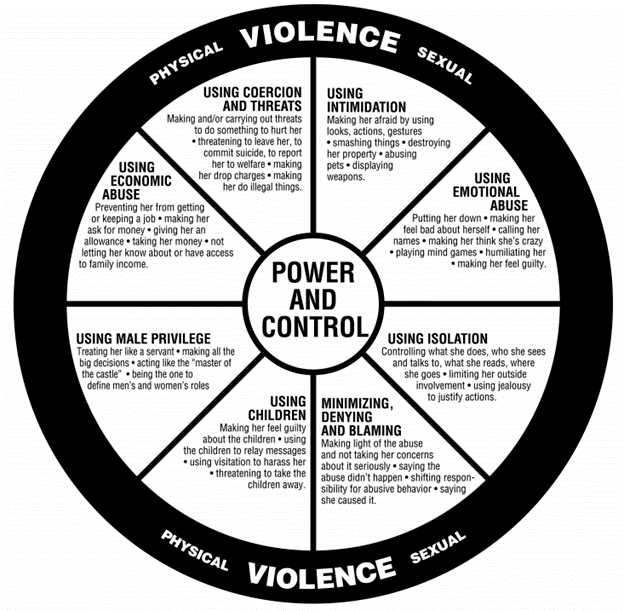
A bloodied lip, a fractured arm, a black eye. These are the images we have come to associate with domestic violence. As an attorney, the physical manifestations of violence can often be proven in court. Unfortunately, there are other forms of domestic violence that often times fall through the cracks in a divorce case.
Scott Hahn, a divorce attorney at Koenig|Dunne, has a keen and perceptive eye to spot signals of domestic violence in its many forms. Prior to joining the Koenig|Dunne team, Scott exclusively represented domestic violence survivors at the Women’s Center for Advancement in Omaha, Nebraska.
At Koenig|Dunne, our attorneys are well-versed in the many forms domestic violence can take. From subtle clues to red flags, your legal team at Koenig|Dunne will support survivors of domestic violence in all the various forms, including:
Financial/Economic: One of the most common forms of abuse is financial or economic abuse. Withholding access to money, controlling the ability to seek employment, lack of decision-making or knowledge about finances, and threats regarding finances are common in divorce cases where abuse is present. Oftentimes, we find clients have stayed in abusive relationships because they felt they didn’t have the financial means to leave. This is exacerbated when children are involved.
Isolation: We often hear that at the heart of domestic violence is power and control over a survivor. A manifestation of power and control often is isolating their partner. Our clients come to us feeling as if they are alone and they have no one to turn to. Isolation can take many forms, but may look like a survivor no longer having close or meaningful relationships with friends or family, not being allowed to work outside of the home, and/or not being allowed to maintain private social medial or email accounts, etc.
Emotional: Emotional abuse, like isolation, can include many types of conduct including: verbal threats to a survivor’s immediate well-being or those of loved ones, threats to pets, continual criticism in public and private, preventing one from practicing their religious beliefs; defamatory accusations made against them to employers, friends, and others, humiliation, etc. As a divorce attorney hearing survivors’ stories, our job is to reaffirm the client’s reality, as they have often been gaslit by their partners. All such tactics usually result in a power imbalance in the marital relationship, making it more difficult over time for a survivor to reach out for legal help.
Because the non-physical forms of domestic violence are nuanced, it’s important for divorce attorneys to know and understand the facets of power and control that survivors experience. Below is a chart that describes in more detail the Power-and-Control Wheel:

If you or a loved one are experiencing domestic violence and are considering divorce, contact Scott Hahn or another experienced divorce attorney at Koenig|Dunne to schedule your initial consultation to learn your rights, options, and discuss a safe path forward.
